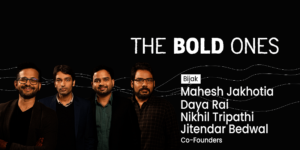The Competition Council of India is investigating Google on exclusivity regarding mode of payment for purchase of apps and in-app purchases (IAPS)
CCI had asked Google to file its response latest by December 31, 2021
Bengaluru Bench of Karnataka High Court has disposed Google India’s writ petition seeking more time to respond to the Competition Council of India

Bengaluru Bench of Karnataka High Court has disposed of Google India’s writ petition seeking more time to respond to the Competition Council of India in the Play store’s payments-related case. The case was disposed of after both parties filed a joint memo.
On 27th December 2021, Google India had filed a petition in Karnakata High Court against the CCI order that read, “…. If no response is received within the stipulated time, the Commission shall proceed in the matter on the basis of material available on record and no further requests for extension of times shall be entertained.”
In a joint memo, both parties agreed to the fact that there would be no precipitation in the matter as deemed earlier. While the CCI is likely to conclude the antitrust probe in the next 60 days, Google has extended the deadline for app developers to integrate with its Play billing system in India by another seven months to October 31, 2022.
Google Vs CCI: What’s The Case?
In 2020, the CCI opened an antitrust case against Google over Google’s planned Play Store policy for making mandatory use of Google Play Store’s payment system for the purchase of apps and in-app purchases (IAPS). Google had also planned to charge 30% from app makers who are looking to list their apps on Android App Store.
With Google commanding over 99% of the Indian smartphone market in India, Indian tech startups who operate via apps have raised concerns at multiple levels, post this announcement.
While tech startups have already sought the Modi government’s intervention to address the issues pertaining to Google’s anti-competition behaviour in the Indian market, their Alliance of Digital India Foundation has also raised the matter with the CCI that is currently investigating the matter.
Post ADIF’s application, the CCI had ordered Google to file the response by November 19, 2021. However, the tech giant later sought eight more weeks to file its response. The antitrust watchdog had increased the deadline and asked the tech giant to file its response by December 31, 2021.
In its response, Google, on December 27, approached the High Court of Karnakata, seeking more time.
Under tremendous pressure, Google has already delayed the 30% commission till March 2022 while mandating Play Store’s payments by October 2022.
However, this is not the only antitrust case that Google has been pushed into. In 2021, the Commission ordered another investigation over allegations that Google abuses its dominant position of Android in the country’s smart TV market too.
Killing The Competition
In 2020, the CCI found Google worth investigating for its antitrust behaviour with regards to:
- Exclusivity regarding mode of payment for the purchase of apps and in-app purchases (IAPS)
- Search manipulation and bias by Google in favour of Google Pay
- Prominent placement of Google Pay on the Play Store
- Search advertisement manipulation on the Play Store
- Exclusivity requirement imposed by Google resulted in unfair terms being imposed on users
Google a.k.a Alphabet has been constantly accused of ‘killing the competition’ across the globe in order to help make the Big Tech bigger. In fact, Google has been fined over $9.7 Bn by the European Commission in three antitrust cases. In the US too, 10 states, led by Texas, have filed a lawsuit against Google over alleged anti-competitive practices to boost its online advertising business by illegally working with social network Facebook.
Back in 2015, India’s CCI too had raised queries on charges against Google for misusing its leadership position to push proprietary products and sponsored links on its search platform — rigging search results.
In 2019, the Commission started probing Google for allegedly misusing its dominant position to reduce the ability of smartphone makers to opt for alternate versions of its Android system.
Besides fighting Google on the legal turf, the Indian tech developers and entrepreneurs are also looking to develop an alternate App store. However, with Google controlling the smartphone OS ecosystem, the fight remains of two unequal.










